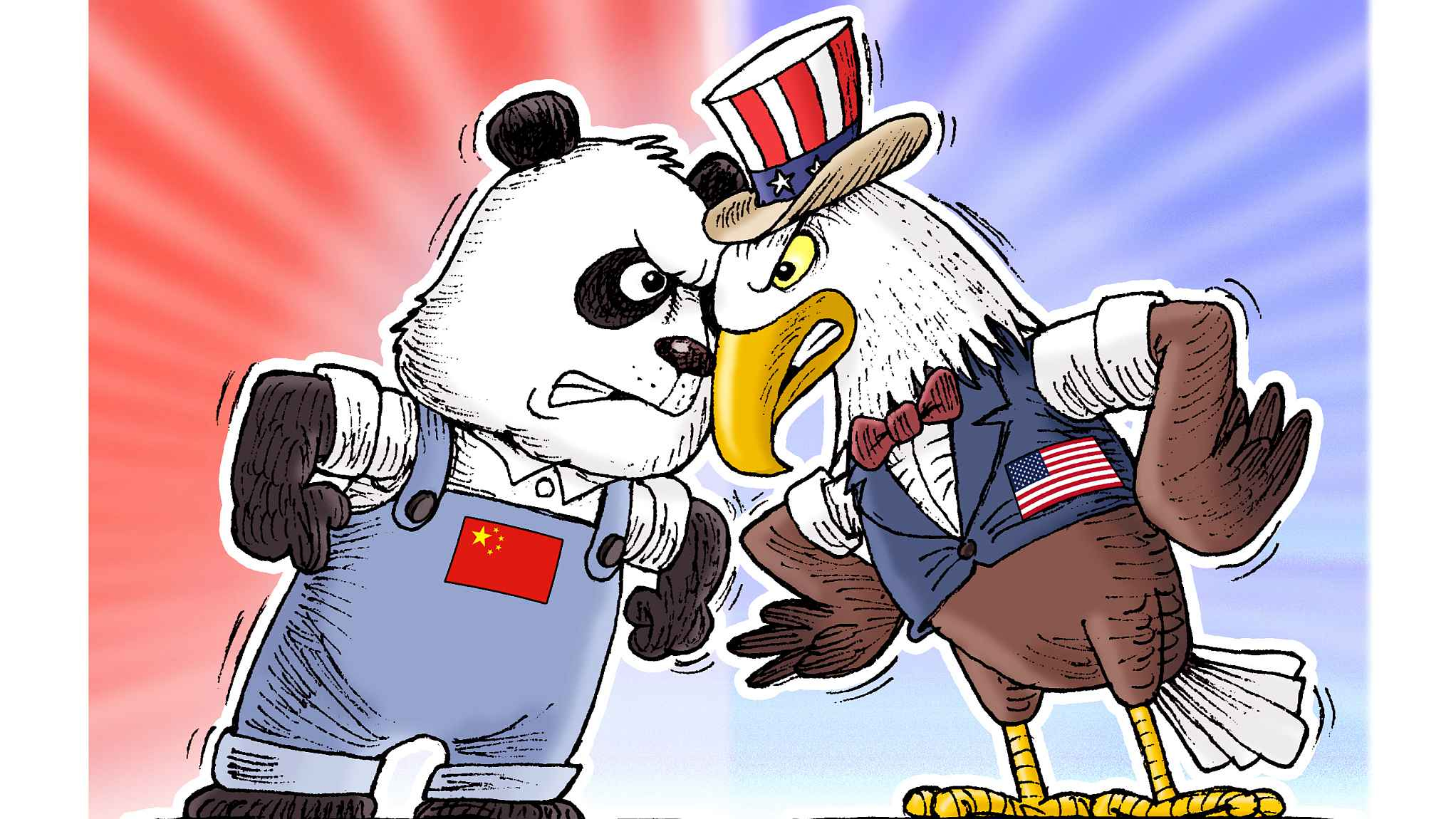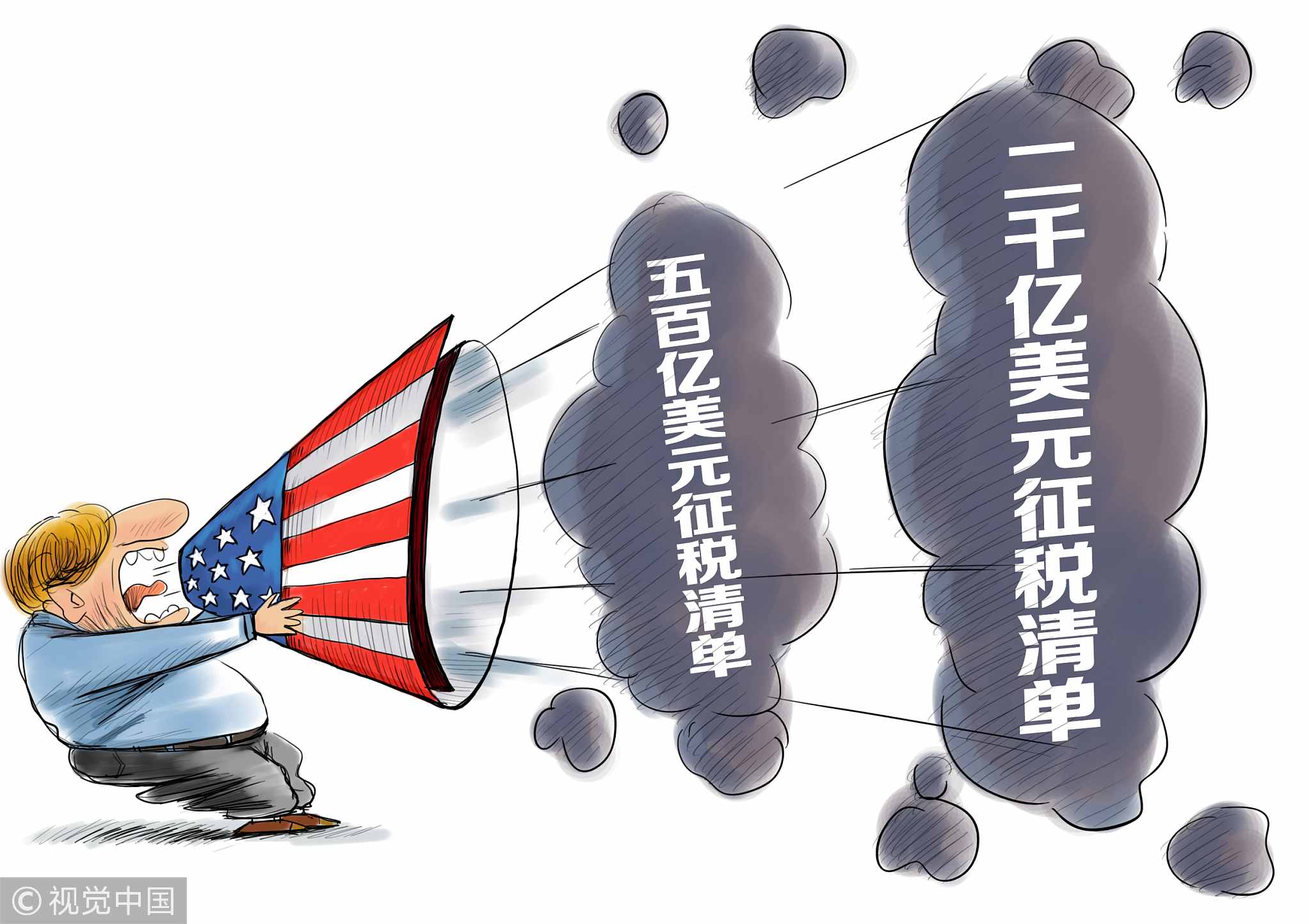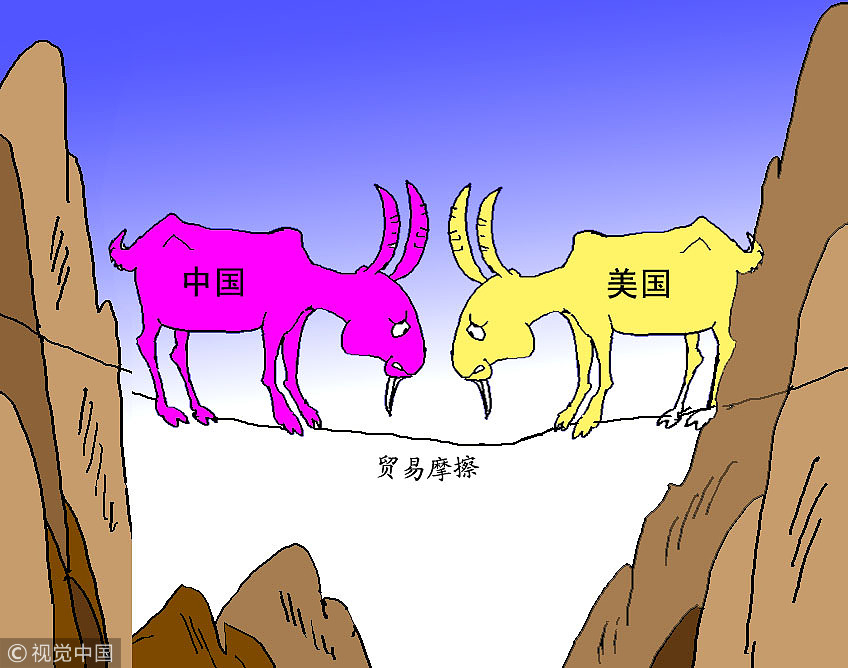
Opinions
15:19, 11-Jul-2018
Opinion: China should prepare for a full-scale trade war
Updated
14:19, 14-Jul-2018
Liu Chunsheng

Editor's note: Liu Chunsheng is an associate professor at the Beijing-based Central University of Finance and Economics and deputy dean of Blue Source Capital Research Institute. The article reflects the author's opinions, and not necessarily the views of CGTN.
The Trump administration on Tuesday released a list of new tariffs on 200 billion US dollars’ worth of Chinese goods. The tariffs of 10 percent will not go into effect immediately but will undergo a two-month review process, with hearings set for Aug. 20-23.
The Chinese Ministry of Commerce had protested on Friday against the impositions and said that it will immediately appeal to the World Trade Organization against US unilateralism.
If implemented, the tariffs will show that the attitude of the United States to the trade war has risen to a strategic level. And China needs to prepare for a full-scale trade war in the future.

The cartoon shows that the Trump administration is going to release a list of tariffs on 200 billion US dollars’ worth of Chinese goods. /VCG Photo.
The cartoon shows that the Trump administration is going to release a list of tariffs on 200 billion US dollars’ worth of Chinese goods. /VCG Photo.
Since Donald Trump was elected as the US president, China has been making great efforts to stabilize the US-China relationship.
President Trump visited China last November 8-10 and signed a 253.5-billion-US-dollar deal, a record in world economic cooperation. On behalf of the Chinese government, Vice Premier Liu He was involved in three rounds of trade negotiations with the US delegation. All these efforts did not prevent the White House from initiating the trade war.
Trump claimed that his main goal was to reduce the trade deficit with China but he chose to close his eyes to China’s huge contribution to the US economy and the fact that the two countries are in the different stages of the global value chain.
He also neglected that US companies made a much greater share of profits than their Chinese partners because the most added value from a product went to the US firms. He did not care that even though there was a deficit in trade in goods, a trade surplus existed in trade in services with China.
Usually, a trade war starts because a country wants to protect its employment or welfare during a recession. Apparently, this is not the case in the US at present. The trade war will be an extra disturbance to the US macro-economy which is performing very well.

The cartoon shows that the Sino-US trade dispute is on the verge of danger. /VCG Photo.
The cartoon shows that the Sino-US trade dispute is on the verge of danger. /VCG Photo.
A US-based economics research company says that the impact will be worse than initially expected by Trump’s government and around 400,000 jobs in the US will be affected. Because of China’s retaliatory measures, billions of dollars worth of exports in some states, especially those backing Trump in the election, will be at risk.
Some US companies and financial institutions expressed their worries about the possible negative effects of trade conflicts on future investments which were being scaled back or postponed.
Nobody could win in a trade war. Tackling a trade deficit is just a superficial reason. It is the real intention for Donald Trump government to suppress China’s development. Therefore, the trade friction may last long.
There are also voices in the US government pushing for a comprehensive war against China. In the Rand Corporation report "War with China," they estimated all possible fallout of US-China wars including economic and geopolitical wars. It seems that the US government has already made full preparations at all levels.
For China, it is significant to prevent the trade conflicts developing into comprehensive confrontations, or even worse, a cold war. However, China also needs to be totally ready for the worst.
The Chinese Ministry of Commerce needs to conduct a detailed analysis of the latest US list, analyze the specific implications, and strive to minimize the impact on China's trade.
In the short run, China should transform its growth model into a one more dependent on its domestic demand and consumption. Chinese companies have to explore more trade partners rather than being exceedingly dependent on the US market.
On the other hand, China should maintain its strategic focus and take the trade war as a new opportunity for economic reform and opening up to the outside world.

SITEMAP
Copyright © 2018 CGTN. Beijing ICP prepared NO.16065310-3
Copyright © 2018 CGTN. Beijing ICP prepared NO.16065310-3